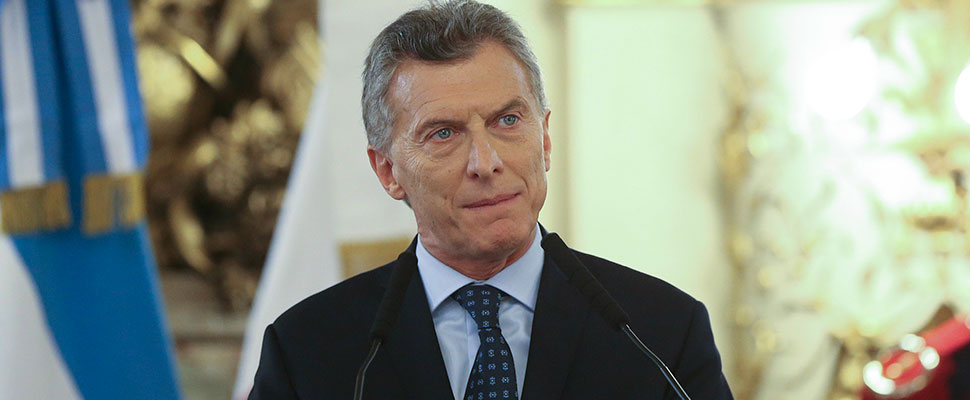Are Macri’s policies working for Argentina’s economy?


The last few years haven’t been easy for Argentina. However, under Mauricio Macri’s presidency, credibility and optimism are restoring economic growth.
Mauricio Macri , Argentina’s president, isn’t like every other South American president. While liberal governments have left their mark in Latin America, the case of Macri –a center right president– seems to be an example of how populist governments can be detrimental for economic development.
After 12 years under the leadership of the Peronist party, Argentina’s current president is trying to dismantle the habits of the previous government. Macri has worked towards a less interventionist government and a more open economy. Even though the response has been less than supportive, recent figures are starting to show that Macri’s policies can, in fact, get the Argentinian economy back in the right track.
One of the most recognized accomplishments of Macri is his desire to establish or reestablish commercial treaties with important economies all across the globe. As current leader of Mercosur –a sub-regional bloc composed of Brazil, Paraguay, Uruguay and Argentina–, Macri has stretched relations with the European Union and Asian economic powers such as Japan and China.
Macri’s work has been received with such positivism that the Japanese Prime Minister Shinzo Abe stressed, “Argentina plays the role of economic engine on the South American continent. […] With the opening of the Argentine economy, I am convinced that Japanese investments are going to grow every day”. Clearly, Macri’s ideology is easy on the eyes of big economies.
Under Macri’s administration, Argentina has been able to escape recession. As Bloomberg notices, the recovery of Argentinian economy has been, at best, “incipient”. However, as the media also stated, this “incipient recovery” is a sign of Macri’s policies “gaining traction”. The problem is that Macri’s government reform program involves an important amount of legal actions that could not pass –depending on congressional support–. His program has more than 35 reforms and, at the moment, their success is in the air.
So far, the only number that supports this statement is the GDP growth. Unemployment and inflation are still high and consumption is slowly growing –slower than expected–. In spite of this, analysts agree that Macri is taking the right steps. The inheritance of the Kirchners government is too ingrained in Argentinians, but the current administration is doing its best to leave the past behind. Macri’s policies are slowly working for the country’s future.
LatinAmerican Post | Juan Sebastian Torres
Copy edited by Susana Cicchetto





